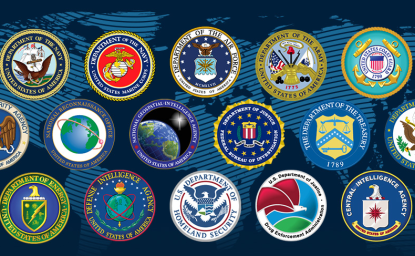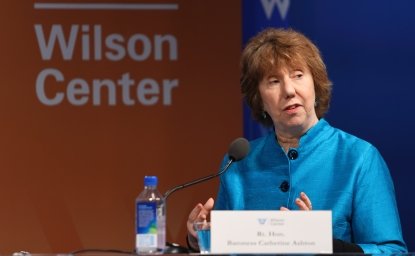Ethnic and Religious Hatred Perceived as Top Threat
People in the Middle East identify religious and ethnic hatred as the greatest threat to the world, according to a recent study by the Pew Research Center.
People in the Middle East identify religious and ethnic hatred as the greatest threat to the world, according to a recent study by the Pew Research Center.
A third of people in the Middle East identify religious and ethnic hatred as the greatest threat to the world, according to a recent study by the Pew Research Center. Concerns about religious and ethnic hatred have grown since 2007 in the region. Respondents in Europe and the United States, however, rank inequality and the growing gap between the rich and the poor higher than other concerns. The following are excerpts from the full report.
Greatest Danger to the World
Five of the seven Middle Eastern countries surveyed identify religious and ethnic hatred as the top threat to the world, with a median of 34% across these seven countries saying this, despite the fact that the survey was administered before the Islamic State (ISIS/ISIL) took over large portions of Iraq and Syria and the recent military conflict between Israel and Hamas in Gaza.
Increasing Concerns about Religious and Ethnic Hatred
Taking the median percentages across the 28 countries surveyed in both 2007 and 2014, there has been a shift toward concerns about religious and ethnic hatred as the world’s top problem, especially in the Middle East. Meanwhile, in Europe, more publics now see inequality as the world’s top problem compared to seven years ago, before the Great Recession and Eurocrisis.
There have been substantial changes in the top choice within some countries over the last decade. For example, in the U.S., when the question was first asked in 2002 just months after the 9/11 attacks and discussion of the spread of WMDs in the lead up to the Iraq War, a third of Americans said nuclear proliferation was the greatest threat to the world. In 2007, after years of fighting in Iraq and Afghanistan, religious and ethnic hatred became the top concern (28%). And now, six years after the Great Recession, with abundant debates about the growing gap between the rich and the poor, inequality is considered the greatest danger.
Meanwhile, Middle Easterners have become more worried about religious hatred. In 2007, a regional median of 24% across six countries named religious prejudice as the greatest danger. By 2014, a median of 32% across those same Middle Eastern countries said this. And in Lebanon, the percentage choosing ethnic hatred jumped 19 points since 2007, while concern has more than doubled in Egypt.
Click here for the full report.

Learn more about Hamas and how it relates to similarly aligned organizations throughout the region. Read more



